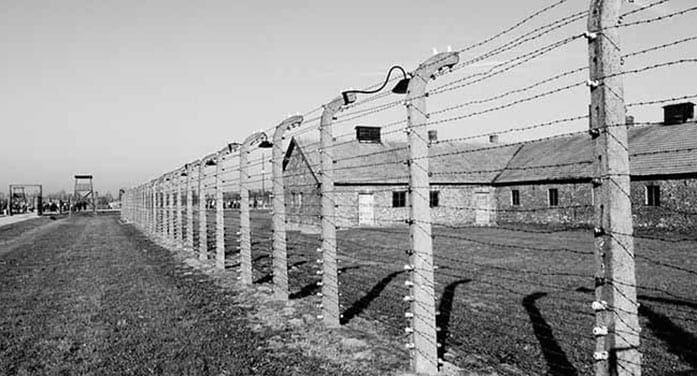Holocaust education is already well-supported in BC education
 As a British Columbia high school Social Studies teacher, I could not agree more with the provincial government’s decision to mandate teaching about the Holocaust in the Socials 10 curriculum. The title of the course is “Canada and the World: 1914 to Present.” The Holocaust is a watershed moment in human history, and it fits perfectly into the Socials 10 timeframe. The Holocaust has also been a central theme in my Social Justice 12 course for decades.
As a British Columbia high school Social Studies teacher, I could not agree more with the provincial government’s decision to mandate teaching about the Holocaust in the Socials 10 curriculum. The title of the course is “Canada and the World: 1914 to Present.” The Holocaust is a watershed moment in human history, and it fits perfectly into the Socials 10 timeframe. The Holocaust has also been a central theme in my Social Justice 12 course for decades.
Given my dedication to this topic, I felt unfairly judged when The Globe and Mail published an article with the headline, BC Teachers’ Federation [BCTF] declines to fund Holocaust education group, while funding pro-Palestinian group.
The issue stems from a newly formed group of BC teachers seeking funding from the teachers’ union to develop resources that focus on the Holocaust. They were turned down because other groups were already doing this, and any teacher could join them.
According to the BC Ministry of Education curriculum website, “The primary goal of Social Studies education is to give students the knowledge, skills, and competencies to be active, informed citizens who are able to think critically. “
 Auschwitz concentration camp |
| Related Stories |
| Rising tide of antisemitism a terrifying reality in Canada
|
| Understanding the past is the only way to build a better future
|
| We can forgive but we should never forget
|
Learning about the Holocaust is essential in achieving this goal because it is the least disputed and best-documented genocide in human history. Quite frankly, only a Nazi would deny its significance.
Informed citizens, however, do not simply need to know the facts about the Holocaust; they need to understand what led to the Holocaust. A brilliant discourse on this topic was published recently by Jewish Canadian author Naomi Klein. Her book Doppelganger includes a chapter entitled “The Nazi in the Mirror,” where she points out that the same concept of racial supremacy that fueled Hitler and the Nazis in their quest for “Lebensraum” has fueled other colonizers in history and continues to do so. In Canada, therefore, understanding the Holocaust gives students a clear lens for understanding our own colonial history and its negative impact.
Students also need to understand the efforts made to make “never again” a reality. In the years following the Holocaust, we adopted the Universal Declaration of Human Rights and the United Nations Genocide Convention. We also expanded the definition of war crimes in the revised Geneva Conventions. Unfortunately, all of these have failed to prevent genocide and crimes against humanity. But it is my profound hope that I am helping my students develop the critical thinking skills they need in building a kinder and more just world.
I honestly don’t know of any Social Studies 10 teachers who do not already teach about the Holocaust. We have been doing so for decades, and there are many excellent resources readily available on the topic. The history of the Nakba, in contrast, has been a taboo topic for generations, and it has only been in recent years that books like The Ethnic Cleansing of Palestine by Israeli historian Ilan Pappé have helped to distinguish myth from reality.
With the current violence in Israel/Palestine and Canada’s involvement, the BCTF came to realize how we’ve been failing our students by neglecting to teach about the Nakba and is responding by trying to develop resources. While teachers are generous with their time, this still requires funding.
The new law making the Holocaust a required topic in the Grade 10 curriculum has also had an impact because teachers want to do their jobs well. As a result, I have been asked several times to share my experience and knowledge on this topic. I will be presenting to the Anti-Oppression Educators Collective (AOEC) in October. The AOEC is a provincial association within the BCTF. It aims to combat systemic oppression in education by promoting anti-oppressive practices and fostering socially just communities. This type of professional collaboration is a hallmark practice in the BCTF.
The BCTF made the right decision to turn down funding to a group whose work would be redundant. We are all interconnected as humans, and no one is free until we are all free.
Gerry Chidiac specializes in languages and genocide studies and works with at-risk students. He received an award from the Vancouver Holocaust Education Centre for excellence in teaching about the Holocaust.
For interview requests, click here.
The opinions expressed by our columnists and contributors are theirs alone and do not inherently or expressly reflect the views of our publication.
© Troy Media
Troy Media is an editorial content provider to media outlets and its own hosted community news outlets across Canada.


